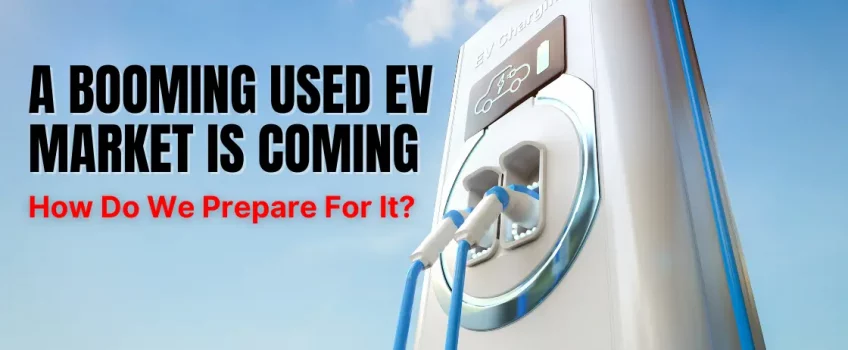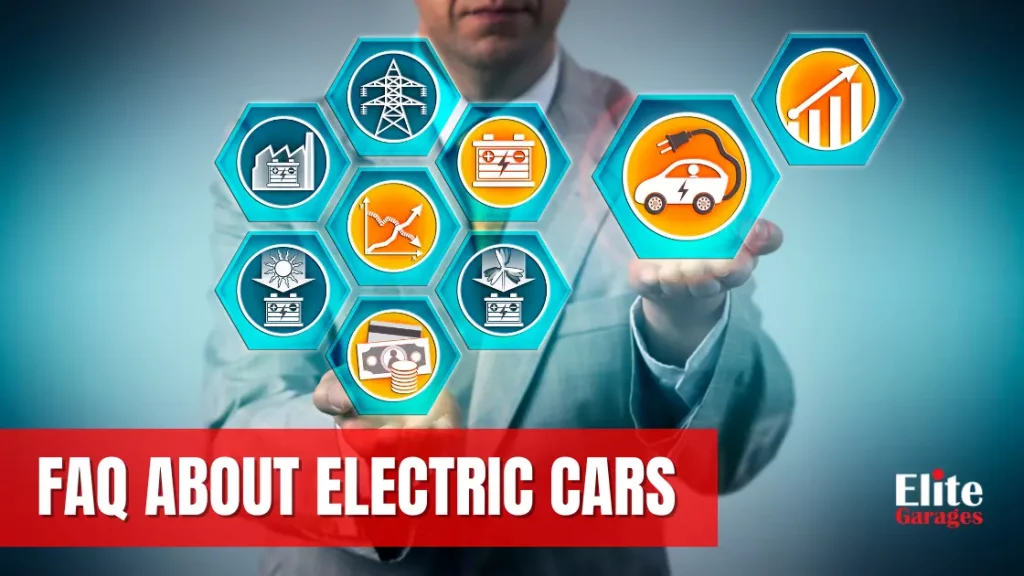
The Emerging Second-Hand Electric Vehicle Market: Opportunities and Challenges
Growing concerns around CO2 emissions and the advent of better battery technology have resulted in more EVs hitting the streets. With more people buying and selling EVs, the second-hand electric vehicle market is booming, especially in the face of the ban on new petrol and diesel cars in some markets. But, as more drivers are making the switch to electric cars, there are some challenges the automotive industry must overcome to benefit from this growing market.
Second-Hand Electric Vehicle Market And The Cost Of Living Crisis
With the government’s ban on new ICE vehicles only a few short years away, more drivers are focusing on going green and it’s evident by the increase in EV production in the UK. In fact, it doubled between May last year and this year while the industry also saw a marked increase in 2021 EV registrations. As positive as this may seem, new electric cars are just too expensive for many drivers.
It’s these high prices and the ongoing cost of living crisis that are sparking a bigger interest from motorists looking for a more affordable second-hand electric vehicle. With more options on the cards, today’s demand for a good second-hand electric vehicle far outweighs the supply.
The good news is, this might change as more new EVs are being manufactured. This will lead to many more used EVs becoming readily available which may result in better prices as more “e-fleets” are bolstering the second-hand supply chain. The question is, how will the automotive industry respond and prepare for the new era of EV drivers? Which challenges must they overcome?
Challenges Of A Bigger Second-Hand Electric Vehicle Market
The used electric vehicle market presents numerous opportunities for the automotive industry, but there are some challenges that must be addressed first. For example, to make good use of second-hand EVs, it is essential for companies to understand what the switch to electric would mean. They should take into account factors such as the cost of maintenance, charging infrastructure, and more.
Educating The Public About Going Electric
One of the biggest challenges is educating people about going electric. Although many consumers are enthusiastic about EVs, they may not know what to expect as anyone who has made the change will attest, it is a rather significant switch. Drivers will need to change their daily driving habits and as one would imagine, consumers new to the EV market will undoubtedly have many questions that automakers and sellers need to answer, including:
- Will a full charge get me from A to B in a single journey compared to a full tank of petrol or diesel?
- How many charging points will be on my route and will there be sufficient charging points?
- How long will it take to fully recharge my EV?
- Will weather conditions impact my EV’s performance?
- Does my electric vehicle need special EV tyres?
- How long before I need to replace the battery?

Better Financing For The Second-Hand Electric Vehicle Market
The auto industry must continue to work on improving financing options, such as leasing schemes or special offers for used EVs to make them more accessible to the general public. EV batteries should also be part of vehicle finance where customers can either choose to make payments on the entire cost of the car or to lease the battery separately.
This could provide the customer with much-needed peace of mind especially if they are concerned about long-term battery life. However, this can make financing the vehicle more difficult but it could help the EV dealership keep the price of a used EV down.
Despite low numbers of second-hand electric cars being financed today, financial institutions and car dealerships must continue to focus on developing the right products before the used EV market hits full speed!
Investment In The Future Of EVs
In addition to education and better financing options, further government investment and incentives will also be needed to ensure that the second-hand electric vehicle market meets the UK’s ICE ambitious phaseout deadline of 2030.
The government needs to do more to set up the used EV market by putting in place the sufficient infrastructure to further promote the “electric revolution”. Since range anxiety is among the primary concerns over EV adoption, charging points should be first on the list.
While tremendous strides have been made, research indicates that the UK’s charging network cannot sustain the expected number of EVs to be on the roads in the near future. That said, the UK government has announced a £1.6bn investment into installing 300,000 charging points before the end of the decade.
Increase EV Service Training
The used EV market will also need a workforce trained to service new and second-hand EVs as only 6.5% of automotive workers are currently properly EV-qualified. With the looming EV boom, there needs to be a bigger drive toward technician training, upskilling and financial support if we are to successfully maintain an influx of second-hand EVs on our roads.
Also Read: Top 10 Electric Cars In The UK
Are You Ready For The Booming Second-Hand Electric Vehicle Market?
The second-hand electric vehicle market presents a great opportunity for the automotive industry to transition into a more sustainable future. But first, companies and government must work together to address the challenges that come with second-hand EVs such as financing and understanding what the switch to EVs would mean.
Government investment is also essential in meeting the UK’s ICE phaseout deadline, and banks and financial institutions should be prepared to provide more attractive used EV financing packages. With the right support, used EVs could help drive the automotive industry towards a more sustainable future but nobody can do it alone.
At Elite Garages, we understand the EV boom is inevitable so we planned ahead by providing our technicians with Level 2 to Level 4 IMI electric/hybrid vehicles courses. As a result, we are well-prepared to service your new or second-hand electric vehicle at a price you can afford.
About Us
Opening Times
Saturday : 8:30–4:00
Sunday : closed
More Information
Contact UsCustomer Information Pack
Check MOT Due Date
Free MOT reminder
Careers
Legal Information
Recent Posts
- Regular Car Maintenance: Joe Achilles Tests Elite Garages’ 250,000-Mile BMW
- Clutch Replacement Near Me: A Comprehensive Guide for UK Drivers
- Antifreeze Coolant: What It Is, How It Works, and When to Use It
- MOT in Brighton: Your Essential Guide to Testing, Servicing and Tyre Safety
- Uneven Tyre Wear Explained: Is It Time for a Wheel Alignment Service?


